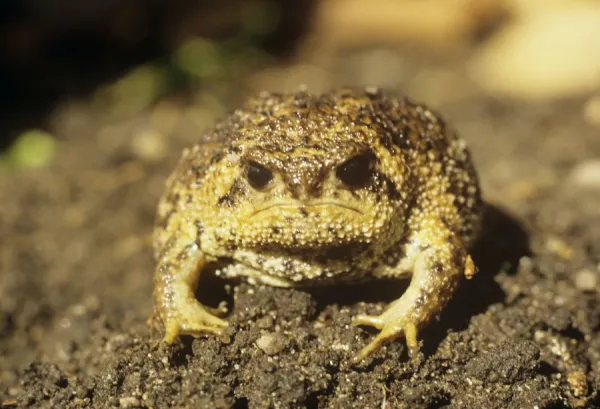Common Health And Wellness Issues in Reptiles: Signs and Solutions
In the complex globe of reptile care, comprehending the common health issues that may affect these unique creatures is paramount in guaranteeing their health. From respiratory system infections that can calmly hold to metabolic bone diseases that can incapacitate, reptiles are susceptible to a range of disorders that call for eager observation and prompt treatment. Whether it's grappling with parasitic infestations, browsing dehydration worries, or resolving skin conditions that manifest in refined means, being attuned to the symptoms and equipped with the expertise of efficient solutions is necessary for any type of reptile owner. By diving even more right into the subtleties of these health issues and discovering the useful remedies readily available, one can protect the wellness and vitality of these remarkable animals.
Respiratory Infections
Respiratory system infections in reptiles can dramatically affect their overall health and wellness and call for punctual focus from experienced veterinarians. These infections are frequently triggered by fungis, infections, or microorganisms and can show up via symptoms such as hissing, nasal discharge, open-mouth breathing, and sleepiness. In reptiles, respiratory infections can be particularly challenging to diagnose and treat as a result of their unique anatomy and physiology. Veterinarians often rely upon a combination of checkups, diagnostic imaging, and laboratory tests to accurately recognize the underlying source of the infection.
Treatment for respiratory infections in reptiles typically entails a mix of helpful treatment, such as maintaining appropriate humidity degrees and temperature slopes in the room, as well as targeted drug to resolve the certain pathogen in charge of the infection. It is important for reptile owners to check their pets very closely for any type of signs of respiratory system distress and seek vet care at the earliest indicator of an issue. With prompt intervention and proper treatment, lots of reptiles can recover totally from breathing infections and return to normal tasks.

Metabolic Bone Condition
What elements add to the growth of Metabolic Bone Disease in reptiles?
Metabolic Bone Illness (MBD) in reptiles is largely triggered by a lack of appropriate calcium, phosphorus, and vitamin D3 degrees in their diet regimen. When reptiles do not get adequate calcium, either through their food or appropriate UVB direct exposure for vitamin D3 synthesis, they go to a high risk of establishing MBD. Reptiles with diet plans reduced in calcium or unbalanced calcium to phosphorus proportions are particularly vulnerable. Furthermore, poor exposure to UVB light prevents reptiles from synthesizing vitamin D3, which is important for calcium absorption and bone wellness.
Insufficient humidity degrees can likewise impact a reptile's capacity to metabolize calcium successfully. Regular vet exams, proper husbandry techniques, and a well balanced diet are crucial to stop Metabolic Bone Disease in reptiles.
Parasitical Infestations
Parasitical infestations posture a considerable health danger to reptiles, affecting their total well-being and requiring punctual veterinary interest. Reptiles can be influenced by different bloodsuckers, including termites, ticks, inner worms, and protozoa. These parasites can trigger a variety of signs, such as weight management, lethargy, skin inflammation, looseness of the bowels, and even death if left unattended.
One common parasite located in reptiles is the mite, which can cause skin anemia, tension, and irritability. Ticks are another external parasite that can send conditions and cause pain to the reptile. Internal bloodsuckers like worms and protozoa can lead to digestion issues, poor nutrition, and compromise the reptile's body immune system.
To detect a parasitic infestation, a veterinarian may perform fecal examinations, skin scrapings, or blood tests. Treatment usually involves deworming medications, antiparasitic baths, or in severe situations, hospitalization. Preventative measures such as regular vet exams, proper health, and quarantine procedures for new reptiles can help lessen the threat of parasitic invasions and make sure the well-being of reptile pet dogs.
Dehydration and Hydration Issues
Dehydration in reptiles can dramatically affect their wellness and well-being, demanding timely treatment and appropriate hydration monitoring. Reptiles are vulnerable to dehydration because of numerous elements such as inadequate water intake, high ecological more temperatures, and specific wellness conditions. Signs of dehydration in reptiles include sunken eyes, sleepiness, loss of skin elasticity, and lowered peeing. Dehydration can lead to severe health problems and even be fatal to the reptile - rain frog for sale. if left without treatment.
To avoid dehydration, reptile owners should guarantee that their family pets have access to clean water whatsoever times. The water dish should be big sufficient for the reptile to take in if needed, specifically for varieties that soak up water with their skin. Furthermore, keeping proper moisture degrees in the reptile's room and providing routine baths can aid prevent dehydration.
In cases of dehydration, it is vital to look for veterinary care promptly. A veterinarian might administer fluids either by mouth or with shots to rehydrate the reptile. It is necessary to attend to the underlying root cause of dehydration to stop reoccurrence and guarantee the reptile's general well-being.
Skin Conditions

Final Thought

Breathing infections in reptiles can news significantly impact their general health and require prompt interest from knowledgeable vets (rain frog for sale). Preventative actions such as normal vet exams, correct health, and quarantine treatments for brand-new reptiles can aid lessen the danger of parasitical infestations and guarantee the well-being of reptile pet dogs
If left unattended, dehydration can lead to severe health problems and also be Homepage deadly to the reptile.
Regularly checking your reptile for any changes in skin shade, look, or appearance can aid in early detection and treatment of skin conditions, advertising the general wellness and health of your scaly buddy. - rain frog for sale
In verdict, reptiles are vulnerable to numerous wellness issues such as breathing infections, metabolic bone condition, parasitic invasions, dehydration, and skin ailments.